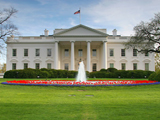Privacy Self-Regulation: Can We Leave It To Them?
Post Views 0
The digital advertising industry has proposed self-regulation through a set of rules that will regulate how companies handle your personal information and personal data.
The new move has come in for a lot of praise from all quarters, but there is still some debate, whether self-regulation will be more effective than government legislation. Many in the government are very cynical and unconvinced about allowing the advertising business to police itself – arguing that there could be a conflict of interest.
Senator John Kerry expressed his reservations by saying, “It’s terrific that the advertising industry plans voluntarily to strictly and honestly comply with Americans’ wishes not to be tracked. But voluntary compliance does not replace the need for a new law”.
House Representative Ed Markey (D-Mass.) is also very reluctant to leave this sensitive subject to self-regulation, “Voluntary, self-regulatory efforts are not a substitute for laws that keep consumers information safe from prying eyes,” he says. However, chances of government privacy legislation getting passed during election time are very small.
Jon Leibowitz, chairman of the Federal Trade Commission, whilst being very appreciative of the industry’s attempt to format its own ethical code, as far as individual privacy was concerned, allayed the fears of the government saying, that they would be keeping a strict watch to ensure that the companies adopted the code, adding “If they don’t enforce it, we will.”
Adam Thierer, a senior research fellow with the Mercatus Center at George Mason University said, “It’s voluntary, but with a lot of government nudging and looking over the shoulder. That’s costly, both directly and indirectly. At the end of the day, there’s no free lunch. Something has to give.”
With the new code of ethics, advertisers will now know what is acceptable and what is not. However, what shape the bill will finally take, is when the debate between the stakeholders, government law enforcers, the advertising industry, privacy groups and the consumer, can finally be turned into a written draft.
Advertisers feel that Government privacy laws could be too restrictive, whilst the regulators feel that freedom to choose, in their hands alone may not be safe. However, one thing should be clear, privacy must be respected. Even in modern times when information is on our finger tips, it can never be outdated – it remains and must be allowed to remain a precious American value.
Privacy Self-Regulation: Can We Leave It To Them? by Harrison Barnes


 What Do You Think of Hillary’s Campaign Logo?
What Do You Think of Hillary’s Campaign Logo?